Home>Garden Essentials>Who Produced GMO Seeds
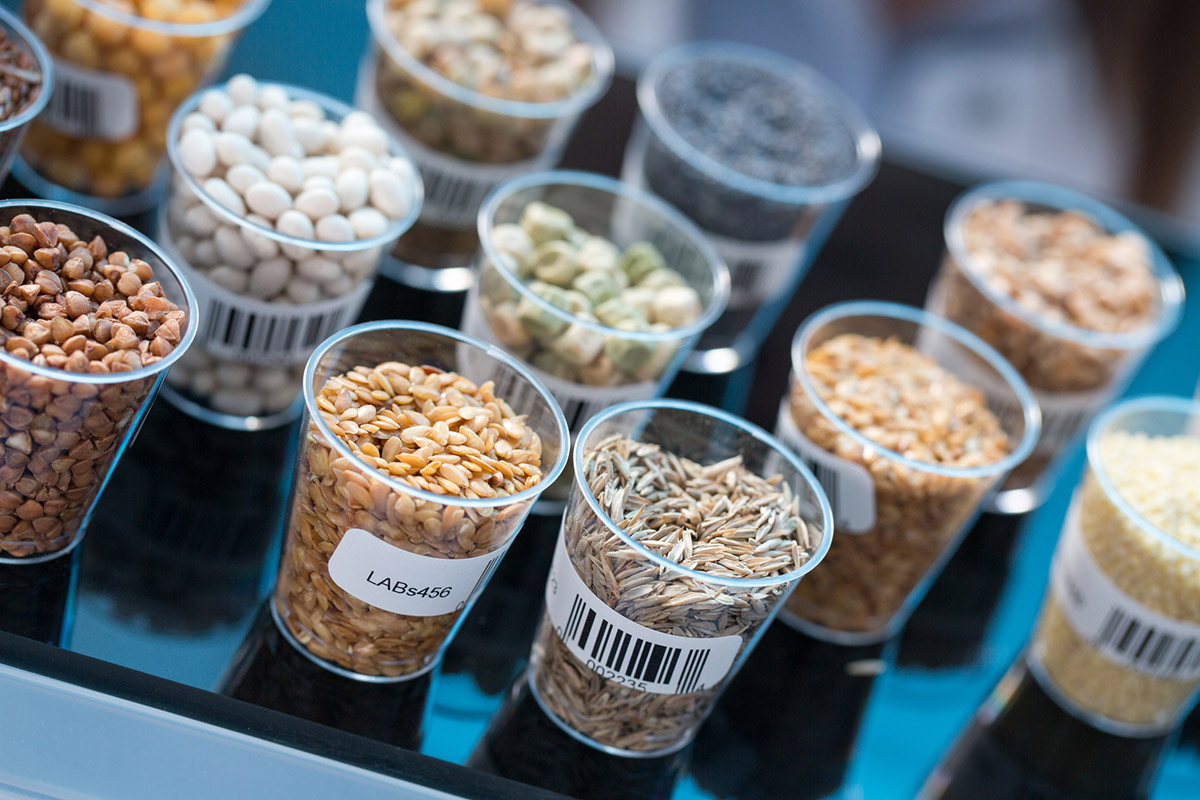

Garden Essentials
Who Produced GMO Seeds
Modified: March 15, 2024
Discover who produces GMO seeds for your garden and make informed choices about what you plant.
(Many of the links in this article redirect to a specific reviewed product. Your purchase of these products through affiliate links helps to generate commission for Storables.com, at no extra cost. Learn more)
Introduction
Welcome to the fascinating world of GMO seeds! In this article, we will explore the concept of genetically modified organisms (GMOs) and their significance in the agricultural industry. GMO seeds, also known as genetically engineered seeds, have revolutionized farming practices and play a vital role in meeting the increasing global demand for food.
So, what exactly are GMO seeds? Simply put, GMO seeds are created through the process of genetic modification, where specific genes are inserted or removed to enhance desired traits in plants. This allows scientists to manipulate the genetic makeup of crops, resulting in plants that are more resistant to pests, diseases, and environmental pressures.
The importance of GMO seeds cannot be overstated. With a constantly growing population and diminishing arable land, it is crucial to find innovative solutions to ensure sustainable food production. GMO seeds have been instrumental in enhancing crop yields, reducing losses, and ensuring a stable food supply. They offer benefits such as improved nutrition, increased tolerance to extreme weather conditions, and reduced reliance on chemical pesticides and herbicides.
Now, let’s delve into the key players in the GMO seed industry, starting with Monsanto (now Bayer).
Key Takeaways:
- GMO seeds, produced by major companies like Monsanto (now Bayer) and Syngenta, have revolutionized farming by enhancing crop productivity, reducing reliance on chemical pesticides, and addressing global food security challenges.
- Companies like DowDuPont (now Corteva Agriscience) and BASF are actively involved in developing genetically modified crops with improved traits such as disease resistance, stress tolerance, and enhanced nutritional content, contributing to sustainable agriculture.
Definition of GMO Seeds
GMO seeds, also known as genetically modified seeds, are agricultural seeds that have been genetically altered through the process of genetic engineering. Genetic engineering involves the manipulation of an organism’s genetic material, including the insertion or deletion of specific genes, to introduce desired traits or characteristics.
The genetic modification of seeds is primarily aimed at improving plant varieties by enhancing their resistance to pests, diseases, and environmental conditions. This process allows scientists to selectively introduce or enhance specific traits that are beneficial to farmers and consumers.
GMO seeds are created in laboratories by isolating specific genes from one species and inserting them into the DNA of another species. These inserted genes can come from different sources, such as other plants, animals, or even bacteria. The genes are carefully selected based on their ability to confer desirable characteristics to the target crop, such as increased yield, improved nutritional content, or enhanced tolerance to drought or herbicides.
The genetic engineering process used to create GMO seeds is precise and controlled, ensuring that only the desired traits are incorporated into the target crops. This scientific approach allows for faster and more efficient development of new plant varieties with desired traits, compared to traditional breeding methods.
It is important to note that GMO seeds differ from conventional seeds, which have undergone years of natural breeding and selection to achieve specific traits. While conventional breeding involves the mixing of genes within the same species, genetic engineering allows for the introduction of genes from unrelated organisms.
GMO seeds have been widely adopted in agriculture, particularly in major crop-producing regions, due to their potential to address critical challenges faced by farmers, such as crop protection, food security, and environmental sustainability.
Now that we understand the definition of GMO seeds, let’s explore the major importance and benefits they offer.
Importance of GMO Seeds
The importance of GMO seeds in the agricultural industry cannot be overstated. These genetically modified seeds have transformed farming practices and have become essential for addressing the challenges of an ever-growing global population and limited resources. Let’s take a closer look at the significance of GMO seeds.
1. Increased Crop Yields: GMO seeds are designed to enhance crop productivity by incorporating traits that improve plant growth and resistance to pests and diseases. Through genetic modification, scientists have been able to develop crops that have higher yields, ensuring a greater food supply to meet the increasing demand.
2. Pest and Disease Resistance: One of the major advantages of GMO seeds is their ability to resist pests and diseases. Genes can be introduced into the crops that make them less susceptible to specific insects, weeds, and pathogens. This reduces the reliance on chemical pesticides and herbicides, making agriculture more environmentally sustainable.
3. Improved Nutritional Value: GMO seeds can be engineered to enhance the nutritional content of crops. For example, scientists have developed genetically modified rice that contains higher levels of vitamin A, addressing nutritional deficiencies in regions where rice is a staple food.
4. Environmental Sustainability: GMO seeds can help reduce the environmental impact of agriculture. By incorporating traits that make crops more resistant to extreme weather conditions, such as drought or temperature fluctuations, GMO seeds enable farmers to produce crops with fewer resources and minimize water usage.
5. Crop Adaptation: Genetic modification allows crops to be adapted to specific regions and environmental conditions. This opens up opportunities for agriculture in areas where traditional crops might struggle to thrive, such as arid or saline soils.
6. Increased Efficiency: GMO seeds provide a more efficient and precise method of crop improvement compared to traditional breeding techniques. Genetic engineering enables scientists to directly introduce desired traits into crops, bypassing the need for time-consuming and unpredictable crosses between different varieties of plants.
7. Food Security: As the world population continues to grow, ensuring food security becomes paramount. GMO seeds contribute to this goal by increasing crop yields, enhancing nutrition, and reducing crop losses, thereby improving food availability and affordability.
The importance of GMO seeds goes beyond just agricultural productivity. These seeds have the potential to address pressing global challenges like hunger, malnutrition, and climate change, making them a valuable tool for sustainable agriculture.
Now, let’s explore the major producers of GMO seeds in the industry.
Major Producers of GMO Seeds
In the world of GMO seeds, there are a few key players who dominate the market. These companies have invested significant resources in research, development, and production of genetically modified crops. Let’s take a closer look at some of the major producers of GMO seeds:
1. Monsanto (now Bayer): Perhaps the most well-known name in the GMO seed industry, Monsanto was a major player before being acquired by Bayer in 2018. Monsanto developed several genetically modified crops, including herbicide-tolerant soybeans and insect-resistant corn varieties. Their products, such as Roundup Ready and Bt crops, have become widely adopted by farmers around the world.
2. Syngenta: Swiss-based Syngenta is another significant player in the field of GMO seeds. They have a diverse portfolio of genetically modified crops, including corn, soybeans, cotton, and vegetables. Syngenta focuses on developing crops with enhanced yield potential, pest resistance, and tolerance to abiotic stresses like drought.
3. DowDuPont (now Corteva Agriscience): Following a merger between Dow Chemical and DuPont, the newly formed Corteva Agriscience became a major player in the GMO seed industry. They are known for their insect-resistant Bt crops, herbicide-tolerant corn and soybeans, and biofortified crops with improved nutritional characteristics.
4. BASF: BASF is a German chemical company that has ventured into the GMO seed market. They focus on developing genetically modified crops with enhanced disease resistance and tolerance to adverse environmental conditions. BASF aims to contribute to sustainable agriculture by creating crops that require fewer resources and have a reduced environmental impact.
While these companies are the major players, it is important to note that GMO seed production is not limited solely to these companies. Many other biotechnology and agricultural companies around the world are actively involved in developing and commercializing genetically modified crops.
It is worth mentioning that the GMO seed industry has faced its fair share of controversies and debates surrounding the safety, ethical concerns, and control of genetically modified seeds. However, the adoption and use of GMO seeds continue to grow globally, driven by the potential benefits they offer to farmers and food production.
With an understanding of the major players in the GMO seed industry, let’s now explore some other significant players in this field.
Monsanto (now Bayer)
Monsanto, now owned by Bayer, has played a significant role in the development and production of genetically modified organism (GMO) seeds. The company was founded in 1901 and quickly became a global leader in agricultural biotechnology. Monsanto’s expertise in genetic engineering and its dedication to improving crop traits have made it a prominent player in the GMO seed industry.
One of the noteworthy contributions from Monsanto is the development of herbicide-tolerant crops, specifically Roundup Ready varieties. Roundup Ready crops are genetically modified to withstand the herbicide glyphosate, allowing farmers to easily control weeds without damaging their crops. This innovation revolutionized weed management practices and significantly increased agricultural efficiency.
In addition to herbicide-tolerant crops, Monsanto has also developed insect-resistant crops, particularly those resistant to certain pests through the incorporation of Bacillus thuringiensis (Bt) genes. Bt crops produce a toxin that selectively targets and kills specific insect pests, reducing the need for chemical pesticides and minimizing environmental damage.
Monsanto’s genetically modified seeds have been widely adopted by farmers around the world. Their GMO crops, such as soybeans, corn, cotton, and canola, have provided numerous benefits to farmers, including increased yields, improved pest management, and reduced reliance on agrochemicals.
However, Monsanto has faced controversy and criticism related to its genetically modified crops and the associated herbicides. Concerns have been raised regarding the environmental impact of herbicide-resistant weeds, the potential for gene flow to non-GMO crops, and the monopolistic control of the seed industry.
In 2016, Bayer AG, a German pharmaceutical and chemical company, announced its acquisition of Monsanto. The merger resulted in the integration of Bayer’s extensive agricultural division with Monsanto’s genetically modified seed business. The new entity, now known as Bayer, continues to be a major player in the GMO seed industry.
Under Bayer’s ownership, the focus remains on developing genetically modified crops that offer benefits to farmers and help address global agricultural challenges. This includes ongoing research and development to enhance crop traits, improve resistance to pests and diseases, and increase agricultural productivity.
It is important to note that following the acquisition, the Monsanto brand name is being phased out, and products are being rebranded under the Bayer name. However, the legacy of Monsanto’s contributions to the field of GMO seeds remains significant in shaping modern agriculture.
The acquisition of Monsanto by Bayer demonstrates the continuing importance and commitment to advancing the field of GMO seeds. With ongoing research and innovations, Bayer aims to provide farmers with improved seed varieties that address the needs of a changing agricultural landscape.
Now, let’s explore another major player in the GMO seed industry: Syngenta.
Tip: GMO seeds are produced by biotechnology companies such as Monsanto, DuPont, and Syngenta. These companies use genetic engineering to modify the DNA of the seeds to make them resistant to pests, diseases, and herbicides.
Read more: How To Tell GMO From Non-GMO Seeds
Syngenta
Syngenta is a global agricultural company based in Switzerland that is actively involved in the production and development of genetically modified organism (GMO) seeds. With a rich history dating back to the late 18th century, Syngenta has established itself as one of the major players in the GMO seed industry.
One of Syngenta’s key focuses is enhancing crop genetics to improve yield potential, resistance to pests and diseases, and tolerance to environmental stresses. Through genetic modification, the company aims to develop crops that can thrive in challenging conditions and provide farmers with more robust and productive plant varieties.
Syngenta has developed a diverse portfolio of genetically modified crops, including corn, soybeans, cotton, and vegetables. These GMO seeds have been engineered to possess traits such as increased yield, herbicide tolerance, insect resistance, and disease resistance.
In terms of herbicide-tolerant crops, Syngenta has made significant advancements. The company has developed varieties that are tolerant to different herbicides, providing farmers with more options for effective weed control. This allows for more efficient crop management and reduces the environmental impact associated with excessive herbicide use.
Furthermore, Syngenta has invested in developing genetically modified crops with enhanced resistance to insects. By incorporating insecticidal traits derived from Bacillus thuringiensis (Bt) proteins, these crops are capable of effectively combating specific pests. This targeted approach helps minimize the need for synthetic pesticides and reduces the risk of harmful residues in the environment.
Additionally, Syngenta has placed a strong emphasis on breeding crops that are more resilient to abiotic stresses, such as drought or temperature fluctuations. By genetically modifying plants to withstand adverse growing conditions, Syngenta aims to contribute to improved agricultural productivity and food security, particularly in regions prone to climatic challenges.
Through its dedication to research and development, Syngenta has significantly contributed to the advancement of genetic engineering in agriculture. The company’s GMO seeds have been widely adopted by farmers worldwide, providing improved crop performance and helping address the challenges of a growing population and limited resources.
However, like other major players in the GMO seed industry, Syngenta has faced its share of controversy. Concerns have been raised regarding the potential risks associated with genetically modified crops, such as environmental impact, effects on biodiversity, and consumer perception of GMO products. These issues have sparked debates surrounding the safety and regulation of genetically modified seeds.
Despite the challenges and criticisms, Syngenta remains committed to driving innovation in agricultural technology through genetic modification. The company continues its research efforts to develop new and improved GMO seeds that address the evolving needs of farmers and contribute to sustainable agriculture.
Now that we have explored Monsanto and Syngenta, let’s move on to another major player in the GMO seed industry: Corteva Agriscience (formerly DowDuPont).
DowDuPont (now Corteva Agriscience)
DowDuPont, now known as Corteva Agriscience, is a leading global agricultural company that has made significant contributions to the development and production of genetically modified organisms (GMO) seeds. The company was formed as a result of the merger between Dow Chemical and DuPont, bringing together their respective expertise in chemicals, materials, and agricultural sciences.
One of the notable achievements of DowDuPont (now Corteva Agriscience) in the field of GMO seeds is the development of insect-resistant crops. Through the incorporation of genes from Bacillus thuringiensis (Bt), these genetically modified crops produce toxins that protect against specific insect pests. This has proven to be a highly effective and environmentally-friendly approach to pest control, reducing the need for synthetic pesticides.
Another area of focus for DowDuPont (now Corteva Agriscience) is the development of herbicide-tolerant crops. The company has engineered crops that are capable of withstanding specific herbicides, allowing for more targeted weed management while minimizing damage to the crop. This innovation has significantly impacted farming practices by providing farmers with greater flexibility and efficiency in controlling weeds.
Furthermore, DowDuPont (now Corteva Agriscience) has been actively involved in breeding crops that have improved tolerance to abiotic stresses such as drought or temperature fluctuations. By introducing genes that enhance stress tolerance, these genetically modified crops can thrive in challenging environmental conditions, leading to more reliable yields and increased agricultural productivity.
The company has also focused on the development of biofortified crops through genetic engineering. By enhancing the nutritional content of crops, DowDuPont (now Corteva Agriscience) aims to address nutritional deficiencies and improve food security in regions where specific nutrients are lacking. These efforts have included genetically modifying crops to provide higher levels of essential vitamins and minerals.
Despite the numerous benefits of GMO seeds developed by DowDuPont (now Corteva Agriscience), the company has faced controversy and criticism. Concerns have been raised regarding the potential environmental impacts of genetically modified crops, the development of herbicide-resistant weeds, and the control of the seed industry. These issues have underscored the ongoing debate surrounding the usage and regulation of GMO seeds.
As the agriculture division of DowDuPont, Corteva Agriscience continues to focus on research and development to advance the field of genetically modified crops. The company is committed to using genetic engineering technologies to create innovative and sustainable solutions for the agricultural industry.
With a diverse portfolio of genetically modified crops, DowDuPont (now Corteva Agriscience) has made significant contributions to the GMO seed industry. Through their advancements, the company has provided farmers with tools to improve crop productivity, reduce reliance on chemical inputs, and address the challenges of modern agriculture.
Now, let’s explore some other significant players in the GMO seed industry.
BASF
BASF, a German chemical company, is a notable player in the genetically modified organism (GMO) seed industry. While primarily known for its chemical manufacturing, BASF has ventured into the development and production of GMO seeds to contribute to the advancement of modern agriculture.
With a focus on sustainable agriculture, BASF has emphasized the development of genetically modified crops with improved traits such as disease resistance, increased yield potential, and stress tolerance. The company aims to provide farmers with innovative solutions that help address the challenges of food production and environmental sustainability.
BASF’s genetic engineering efforts have resulted in the creation of crops with enhanced disease resistance. Through genetic modification, specific genes are incorporated into plants to boost their natural defense mechanisms. This helps reduce crop losses caused by diseases, minimizing the need for chemical treatments and promoting more sustainable farming practices.
In addition to disease resistance, BASF has also invested in developing genetically modified crops that can withstand abiotic stresses such as drought or extreme temperatures. By introducing genes that enhance stress tolerance, these crops can better adapt to challenging growing conditions, improving agricultural productivity and resilience.
BASF has also focused on improving the nutritional content of crops through genetic modification. By incorporating genes that increase the levels of specific nutrients, the company aims to address global malnutrition challenges. Biofortified crops with enhanced nutritional profiles have the potential to improve the health and well-being of communities that rely on staple food crops.
Furthermore, BASF strives to contribute to sustainable agriculture by developing genetically modified crops that require fewer resources and have a reduced environmental impact. By increasing crop efficiency and reducing inputs such as water and fertilizers, these crops can help minimize the ecological footprint of agriculture.
It is important to note that BASF leverages its expertise in chemistry and materials to enhance the efficiency and effectiveness of genetic modification processes. This integrated approach allows for the development of more precise and targeted modifications in crops, ensuring the desired traits are effectively incorporated.
While BASF is a prominent player in the GMO seed industry, it is worth mentioning that the company also collaborates with other key stakeholders, including farmers, researchers, and regulatory authorities, to ensure responsible and science-based development and deployment of genetically modified crops.
As with other major GMO seed companies, BASF has faced scrutiny and debate regarding the safety, regulation, and potential environmental impacts of genetically modified crops. These discussions reflect the ongoing dialogue surrounding GMOs and the need for transparent and rigorous assessment processes.
Despite the controversies, BASF remains committed to advancing the field of genetically modified crops. Through research, innovation, and collaboration, the company aims to contribute to sustainable agriculture and the development of crops that meet the evolving needs of farmers and consumers.
Now, let’s wrap up our exploration of major players in the GMO seed industry.
Other Players in the GMO Seed Industry
While the major players like Monsanto (now Bayer), Syngenta, DowDuPont (now Corteva Agriscience), and BASF dominate the genetically modified organism (GMO) seed industry, there are many other companies actively involved in the development and production of GMO seeds. These companies contribute to the advancement of agricultural biotechnology and offer a range of genetically modified crops. Let’s explore some significant players in the GMO seed industry:
1. Pioneer Hi-Bred: Pioneer Hi-Bred, a subsidiary of Corteva Agriscience, is recognized for its contributions to plant genetics and hybrid seed development. The company focuses on the development of genetically modified crops with improved yield potential, drought tolerance, and insect resistance. Pioneer Hi-Bred has made notable advancements in corn and soybean varieties.
2. Bayer CropScience: Bayer CropScience, a division of Bayer AG, is actively involved in the research, development, and production of genetically modified crops. The company’s offerings include genetically modified cotton, canola, and rice varieties. Bayer CropScience aims to develop seeds that improve crop performance, enhance herbicide tolerance, and minimize environmental impact.
3. Syngenta: While previously mentioned as a major player, Syngenta also falls under the category of “other players” due to its focus on research and development of new GMO seed varieties. The company offers genetically modified corn, soybeans, vegetables, and other crops with enhanced yield potential, disease resistance, and tolerance to abiotic stresses.
4. Seminis: Seminis, a subsidiary of Bayer, specializes in the development of genetically modified vegetable seeds. The company offers a wide range of vegetable varieties with improved characteristics such as disease resistance, enhanced shelf life, and improved nutritional content. Seminis focuses on breeding genetically modified vegetables that meet the needs of farmers and consumers.
5. KWS SAAT SE: KWS SAAT SE is a German seed company that has made significant contributions to genetically modified crops, particularly in the field of sugar beet. The company has developed genetically modified sugar beets with improved yield potential and resistance to diseases such as rhizomania. KWS SAAT SE aims to provide farmers with high-quality seed varieties that optimize sugar beet cultivation.
6. Dow AgroSciences: Dow AgroSciences, a subsidiary of Corteva Agriscience, focuses on developing genetically modified crops with enhanced and sustainable traits. The company offers a range of genetically modified crops, including corn, soybeans, cotton, and canola, with improved disease resistance, insect protection, and herbicide tolerance. Dow AgroSciences aims to address global agricultural challenges through innovative biotechnology solutions.
7. Monsanto (now Bayer): While mentioned earlier as a major player, it is worth highlighting Monsanto as an important contributor to the GMO seed industry. Before the acquisition by Bayer, Monsanto was at the forefront of genetic engineering, developing genetically modified crops with traits such as herbicide tolerance and insect resistance. The company played a pivotal role in popularizing GMO seeds globally.
These are just a few examples of the many companies engaged in the GMO seed industry. Each company brings its unique expertise and focus to the development and production of genetically modified crops, contributing to the ongoing innovation and advancement of agricultural biotechnology.
As the field of genetic engineering continues to evolve, it is likely that new players will emerge, and existing players will continue to make strides in developing genetically modified seeds that address the challenges faced by modern agriculture.
Now, let’s summarize the insights we’ve gained from exploring the major players in the GMO seed industry.
Read more: What Are GMO Seeds
Conclusion
The genetically modified organism (GMO) seed industry has substantially transformed modern agriculture. Major companies like Monsanto (now Bayer), Syngenta, DowDuPont (now Corteva Agriscience), and BASF have been at the forefront of developing genetically modified crops that offer numerous benefits to farmers and contribute to sustainable food production.
GMO seeds have revolutionized farming practices by enhancing crop productivity, reducing crop losses due to pests and diseases, improving nutritional content, and providing greater resilience to environmental stresses. These advancements have helped address the challenges of an ever-growing global population, diminishing arable land, and climate change.
Companies like Monsanto (now Bayer) have introduced herbicide-tolerant crops, allowing for more efficient and targeted weed management, reducing reliance on chemical herbicides, and enhancing agricultural efficiency. Syngenta focuses on developing crops with enhanced yield potential, pest and disease resistance, and stress tolerance, contributing to more robust and productive plant varieties.
DowDuPont (now Corteva Agriscience) has made significant contributions in the field of insect-resistant crops, providing farmers with effective and environmentally-friendly solutions for pest control. Meanwhile, BASF has focused on developing genetically modified crops with improved disease resistance, stress tolerance, and nutritional content.
These major players in the GMO seed industry have faced criticism and debates surrounding the safety, environmental impact, and control of genetically modified crops. However, their contributions to sustainable agriculture and addressing global challenges cannot be understated.
Alongside the major players, other significant companies like Pioneer Hi-Bred, Bayer CropScience, Seminis, KWS SAAT SE, and Dow AgroSciences also contribute to the development and production of genetically modified crops. Each company brings its expertise and focus to enhance crop characteristics, improve yield potential, and mitigate environmental impacts.
The GMO seed industry continues to evolve, driven by ongoing research, innovation, and collaboration. The aim is to develop genetically modified crops that address the evolving needs of farmers, consumers, and the environment. As the global population continues to grow and resources become more limited, the importance of GMO seeds in ensuring sustainable and secure food production will only continue to increase.
While the GMO seed industry certainly has its controversies, it is crucial to balance the benefits and potential risks associated with genetically modified crops. Rigorous scientific evaluation, transparent regulation, and open dialogue are essential to creating a future where GMO seeds can coexist with conventional farming practices while maintaining environmental sustainability and meeting the demand for food.
Ultimately, the GMO seed industry plays a vital role in modern agriculture, providing farmers with innovative tools to enhance crop productivity, reduce environmental impact, and contribute to global food security. Through ongoing advancements and responsible practices, the potential for genetically modified crops to address the challenges of a changing world remains promising.
Frequently Asked Questions about Who Produced GMO Seeds
Was this page helpful?
At Storables.com, we guarantee accurate and reliable information. Our content, validated by Expert Board Contributors, is crafted following stringent Editorial Policies. We're committed to providing you with well-researched, expert-backed insights for all your informational needs.
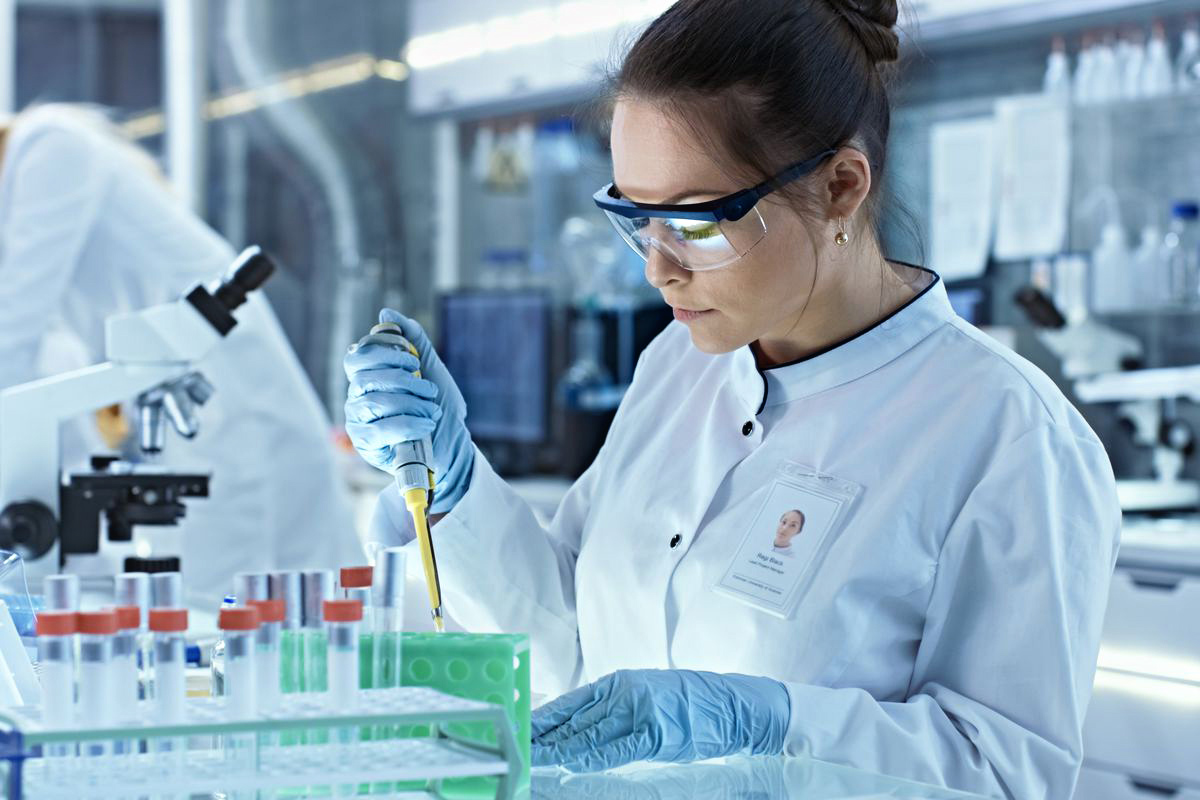
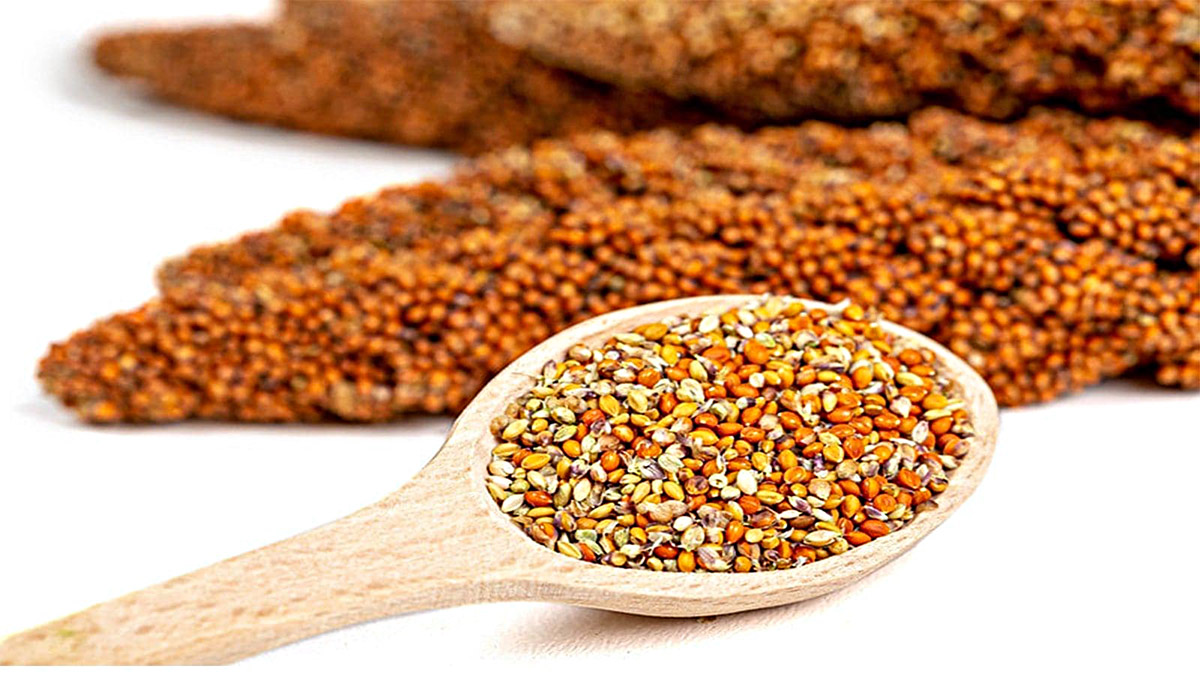

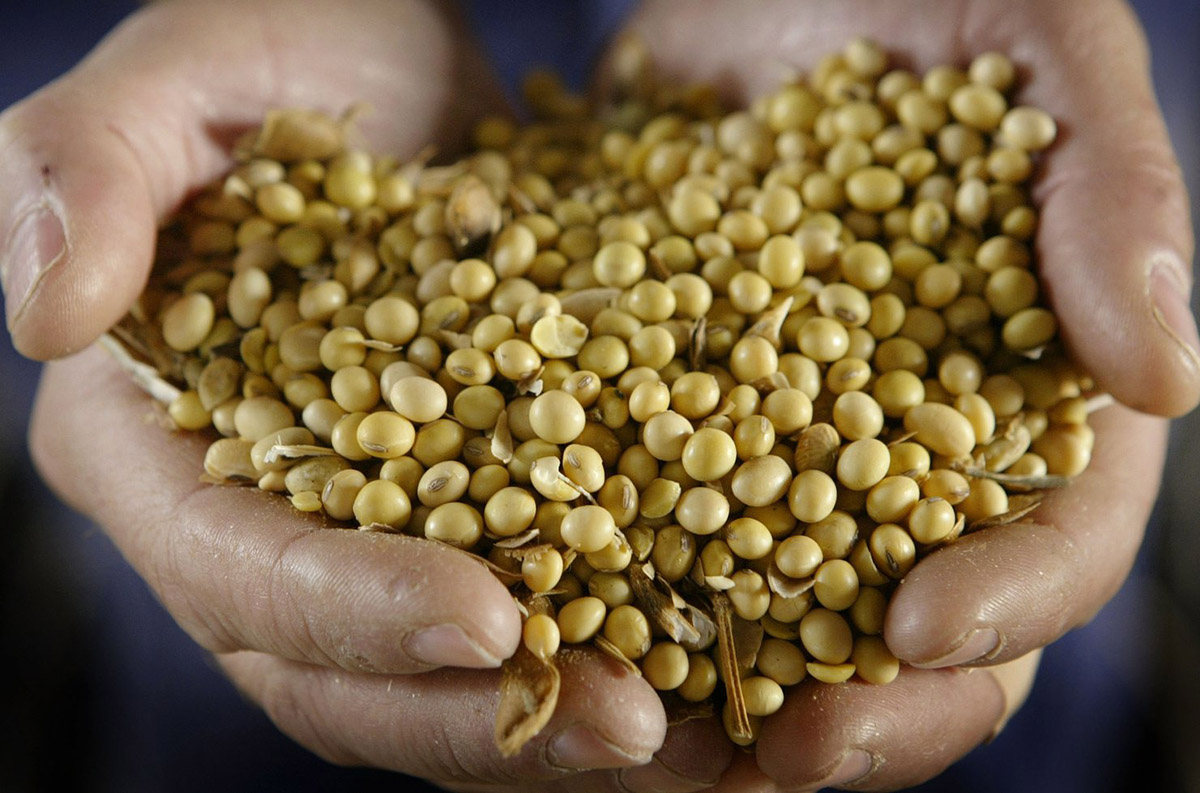
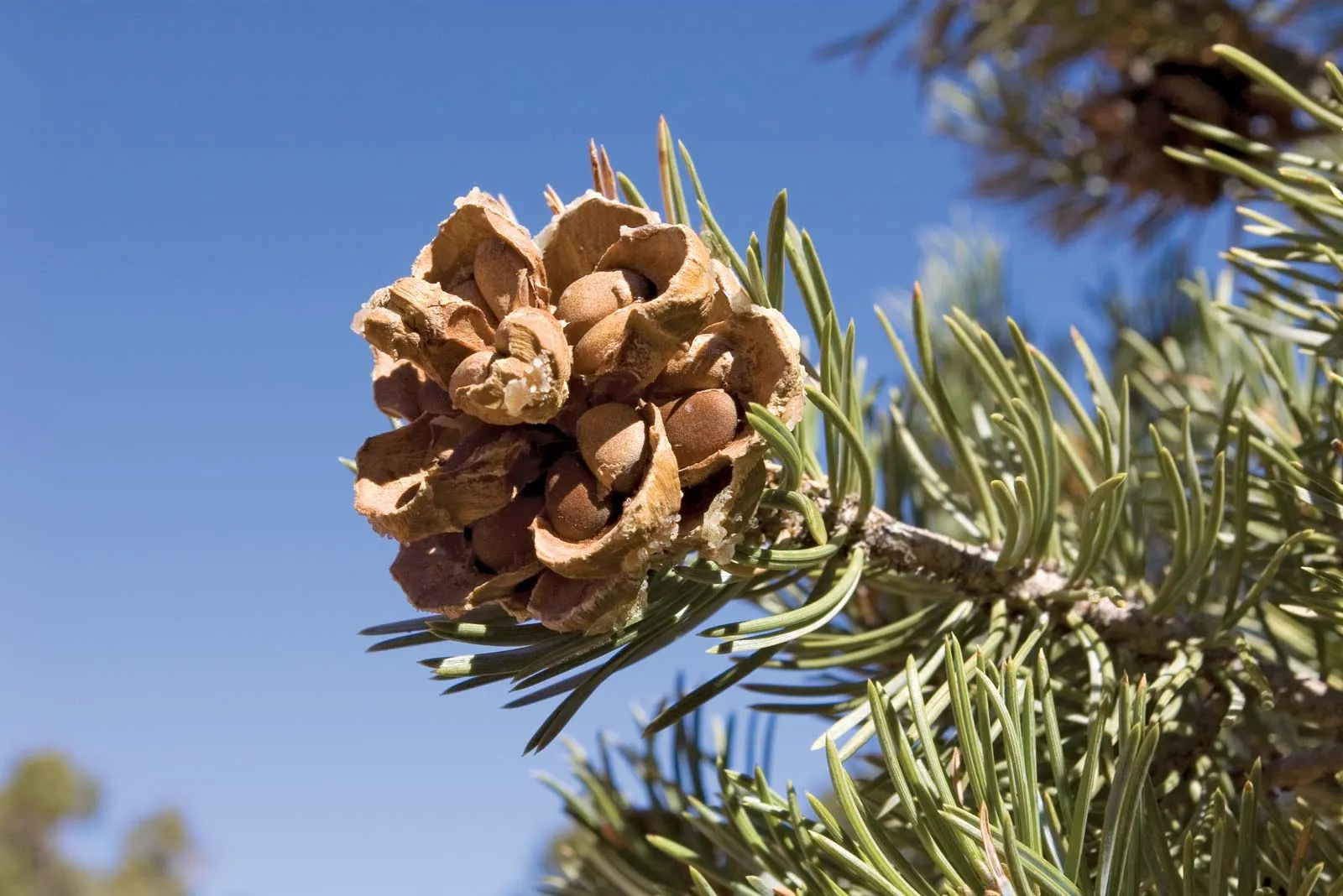

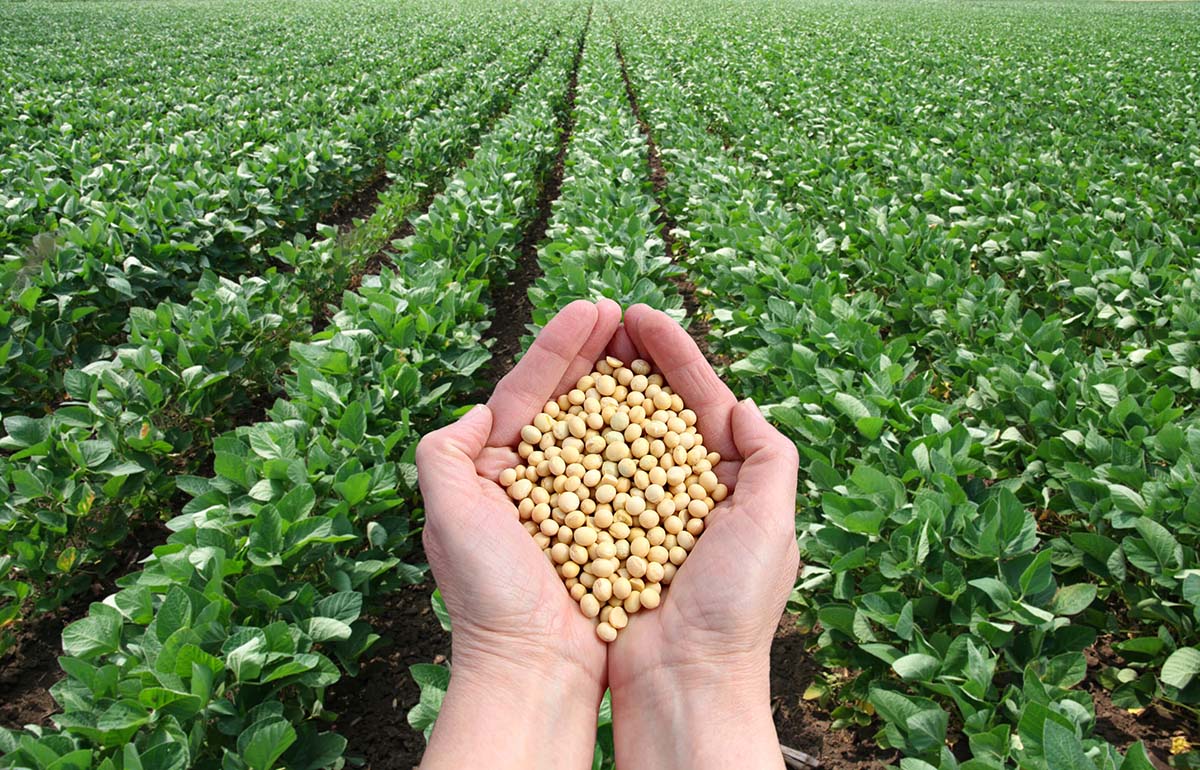
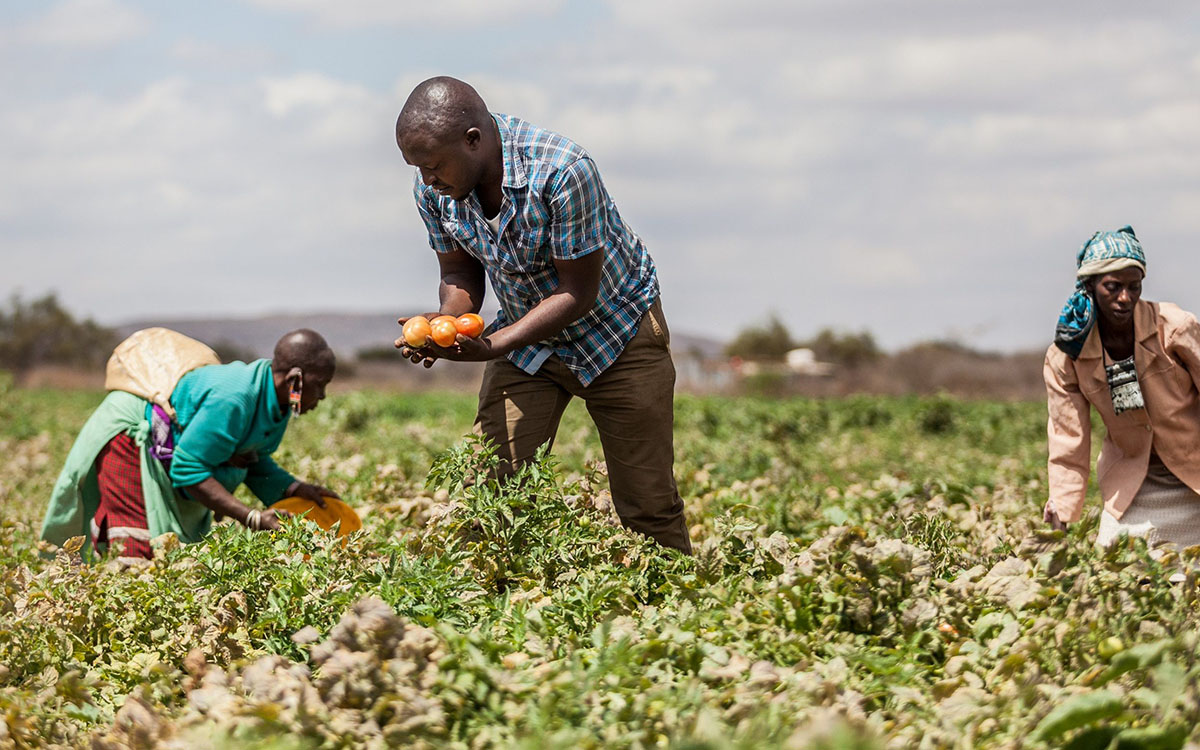
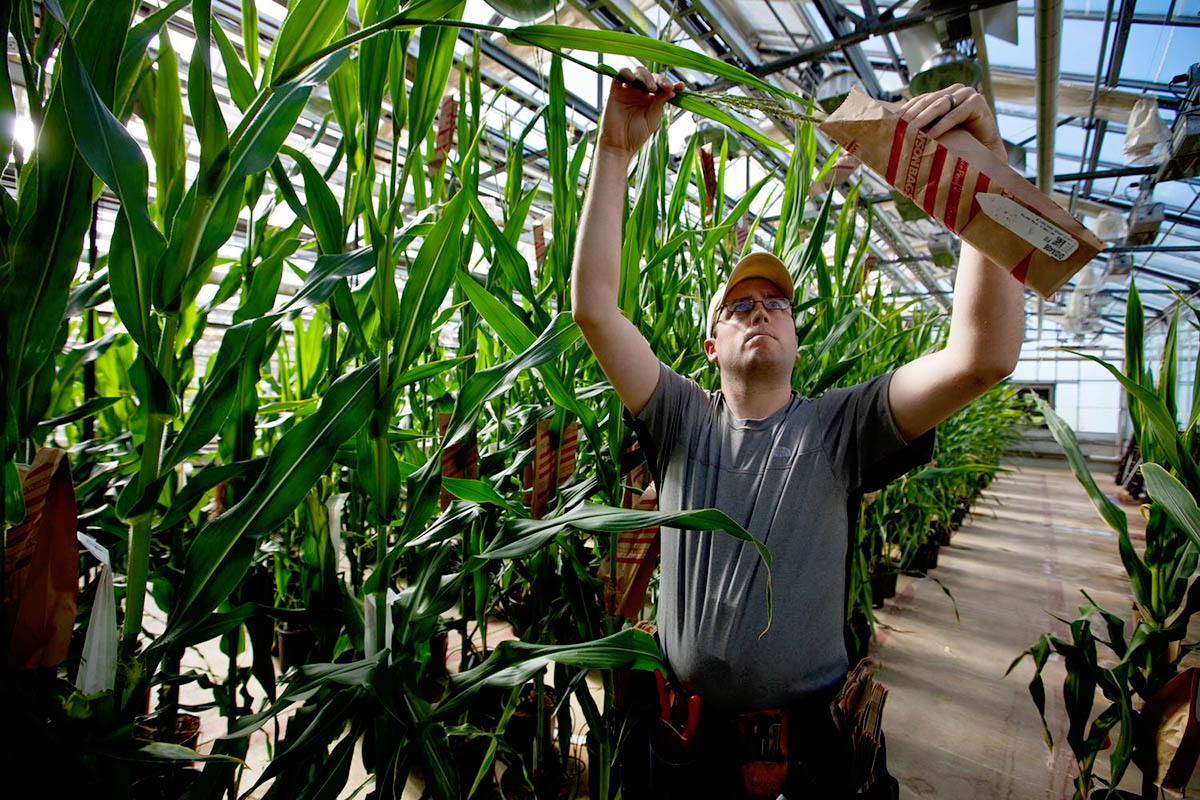
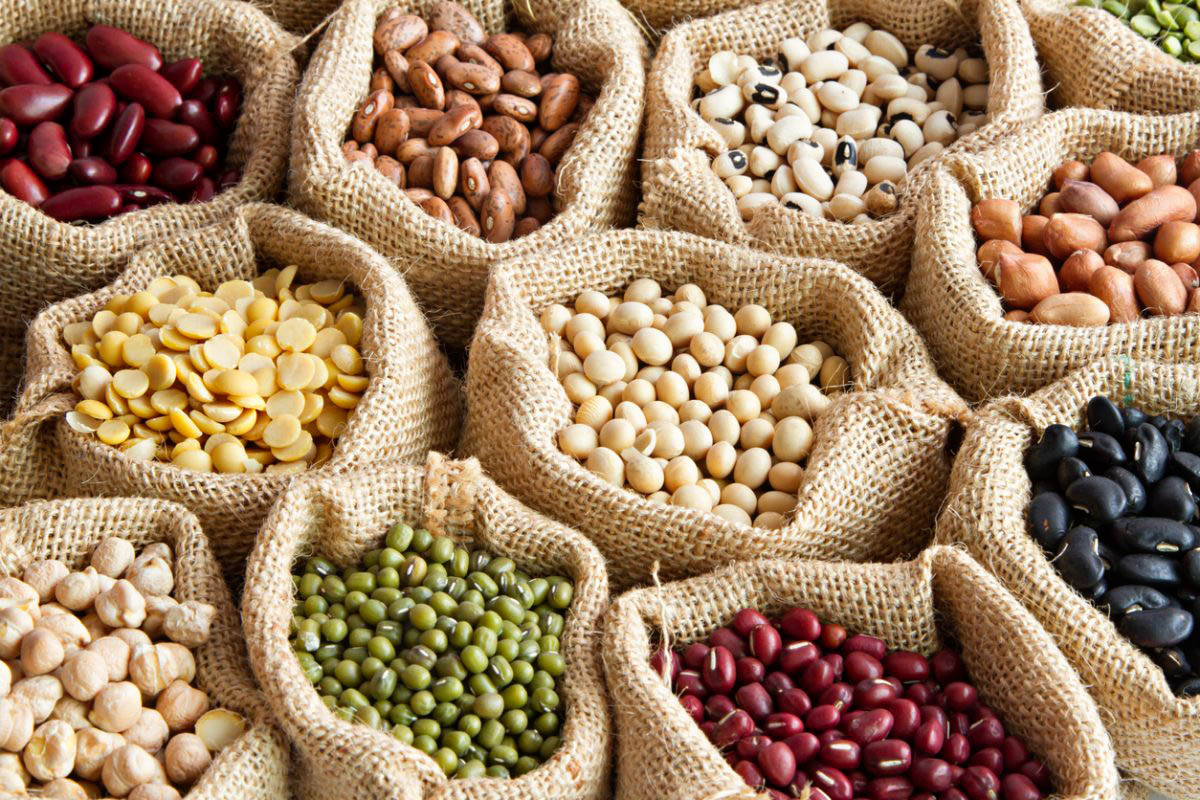
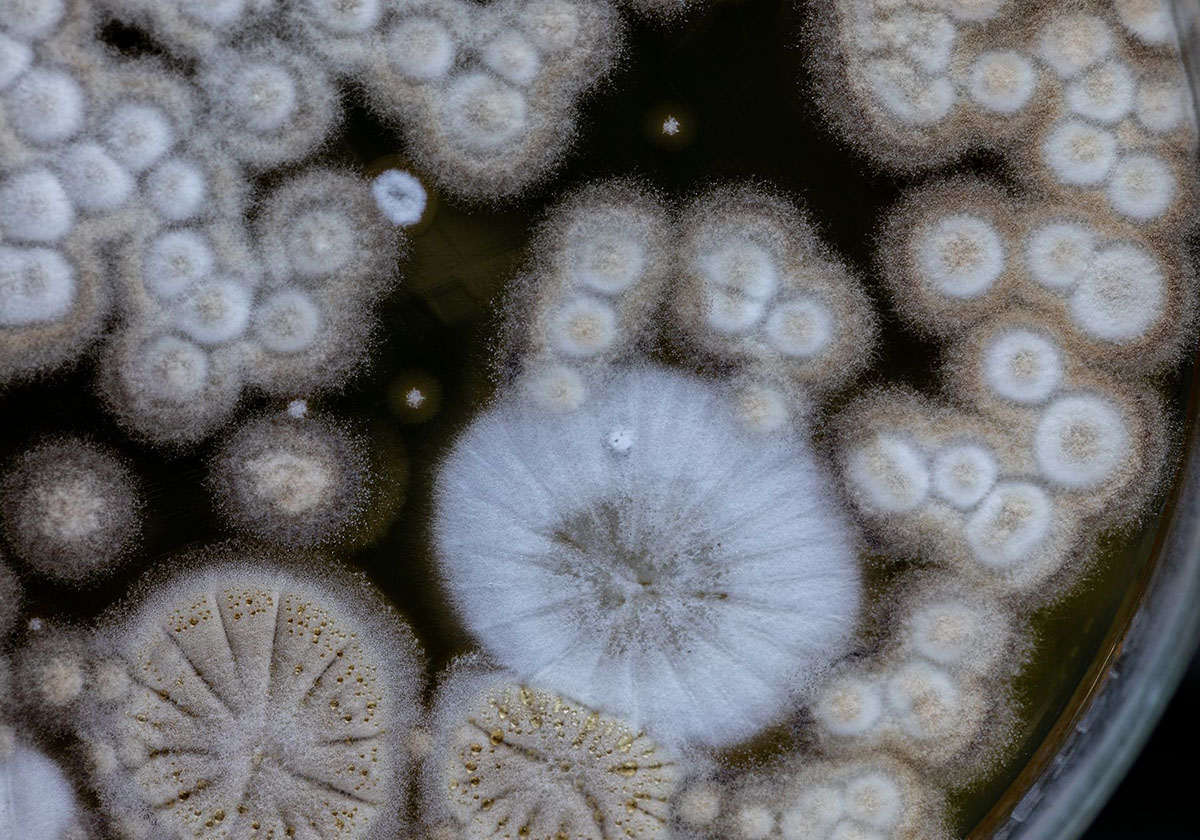
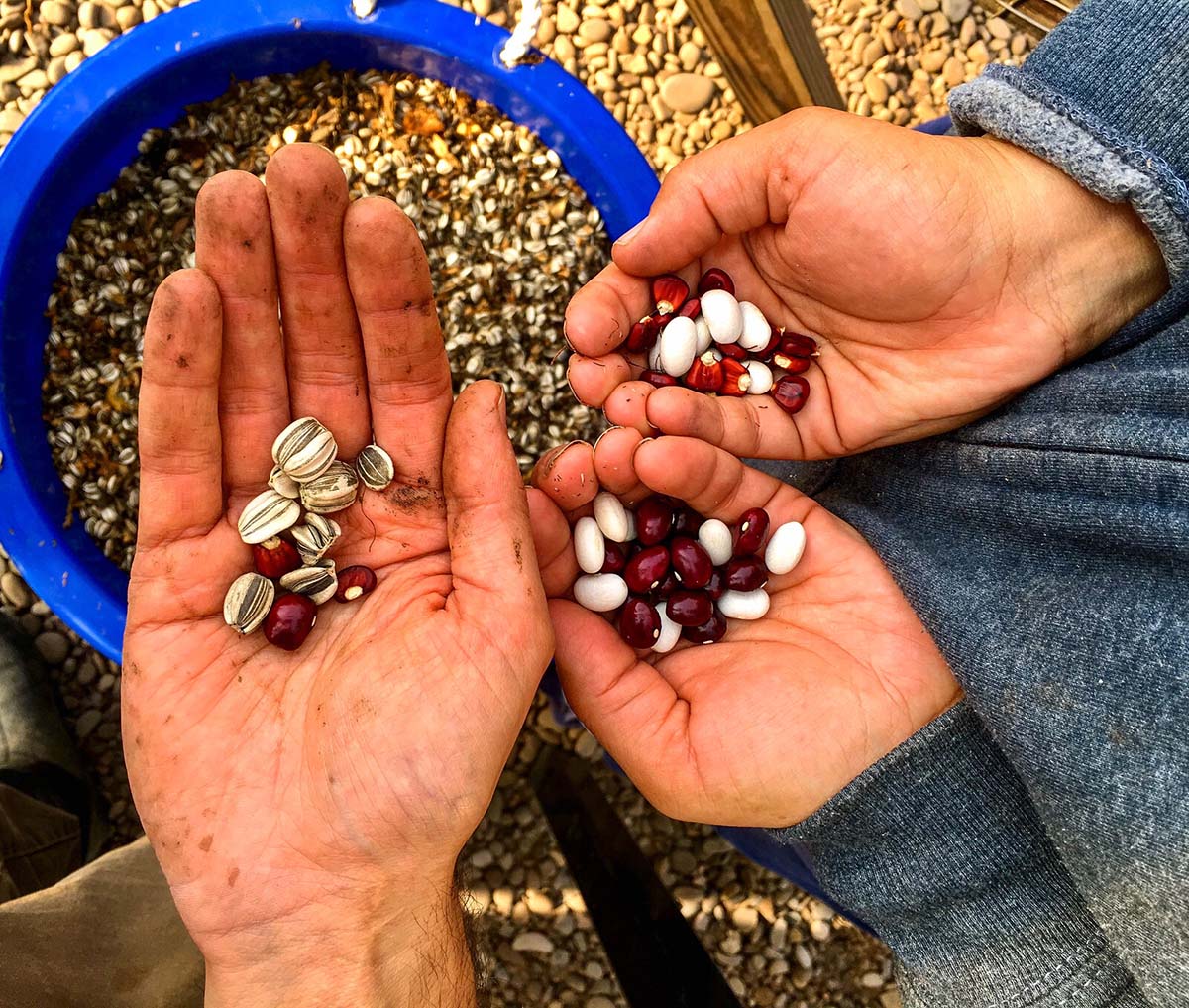
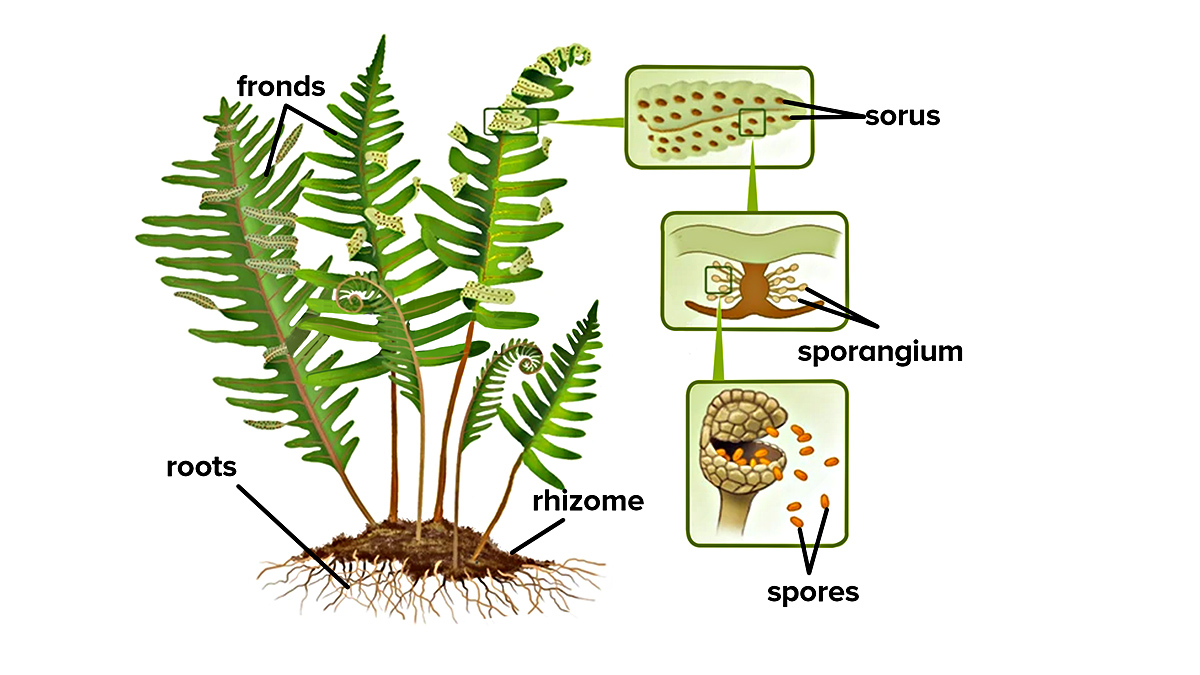

0 thoughts on “Who Produced GMO Seeds”